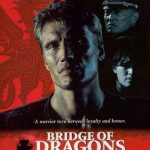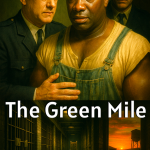Kingdom of Heaven 2005

Kingdom of Heaven, directed by Ridley Scott, is an epic historical drama set during the Crusades in the 12th century. The film stars Orlando Bloom as Balian of Ibelin, a blacksmith who unexpectedly becomes a knight and defender of Jerusalem. The movie explores themes of faith, honor, and the complex political and religious conflicts between Christians and Muslims during this tumultuous period.

Balian (Orlando Bloom, left) has much to learn from his father, Godfrey of Ibelin (Liam Neeson).
Visually, Kingdom of Heaven is stunning. Ridley Scott’s direction, combined with impressive cinematography and grand set designs, immerses viewers in the medieval world. The battle scenes are large-scale and intense, especially the siege of Jerusalem, which is one of the film’s highlights. The costumes and settings feel authentic, contributing to the overall epic atmosphere.
Orlando Bloom delivers a solid performance, portraying Balian’s transformation from a humble blacksmith to a noble knight with a strong sense of justice. However, some critics argue that his character lacks depth and charisma compared to other roles he has played. Supporting actors like Liam Neeson (Godfrey), Eva Green (Sibylla), and Jeremy Irons (Tiberias) add much-needed gravitas and complexity to the story. Ghassan Massoud as Saladin offers a respectful and dignified portrayal of the Muslim leader, providing balance to the narrative.

The film’s strength lies in its attempt to present a balanced view of the Crusades, avoiding the typical black-and-white portrayal of good versus evil. It shows both sides as human beings with motivations, fears, and virtues. This nuanced approach encourages viewers to think critically about religious intolerance and the consequences of war.
However, Kingdom of Heaven is not without flaws. The pacing can feel uneven at times, especially in the first half, where the story takes a while to build momentum. Some characters are underdeveloped, and certain plot points feel rushed or overly simplified. The romantic subplot between Balian and Sibylla, while adding emotional depth, sometimes detracts from the main narrative.
Interestingly, the theatrical release of Kingdom of Heaven received mixed reviews and underperformed at the box office. Many critics felt the film was too long and that it sacrificed character development for spectacle. However, the Director’s Cut, released later, is widely regarded as superior. It adds about 45 minutes of footage, enhancing character arcs and providing a more coherent and satisfying story.
Overall, Kingdom of Heaven is a visually captivating and thought-provoking film that tackles a complex historical era with ambition and sincerity. While it may not fully satisfy viewers looking for a purely action-driven movie or a deeply personal character study, it offers a compelling meditation on faith, leadership, and humanity during a time of conflict.
If you enjoy historical epics with philosophical undertones and grand battles, Kingdom of Heaven is worth watching—especially the Director’s Cut version. It’s a film that encourages reflection on tolerance and the price of peace, making it relevant even today.










